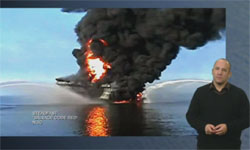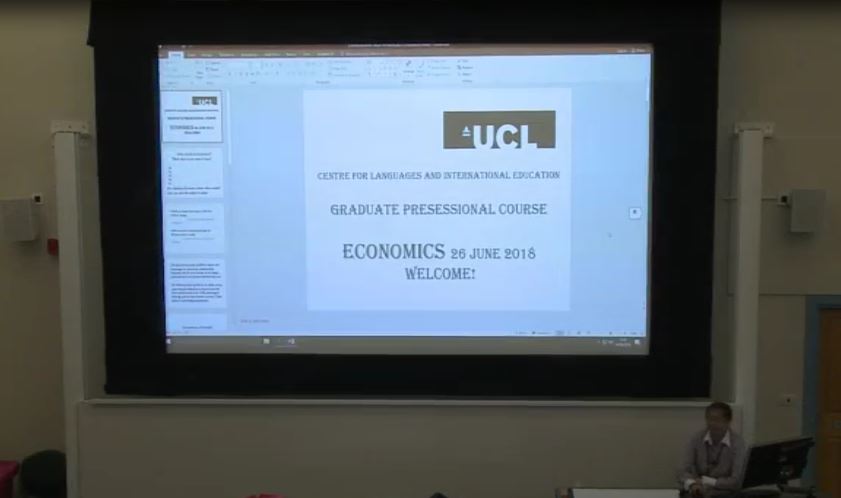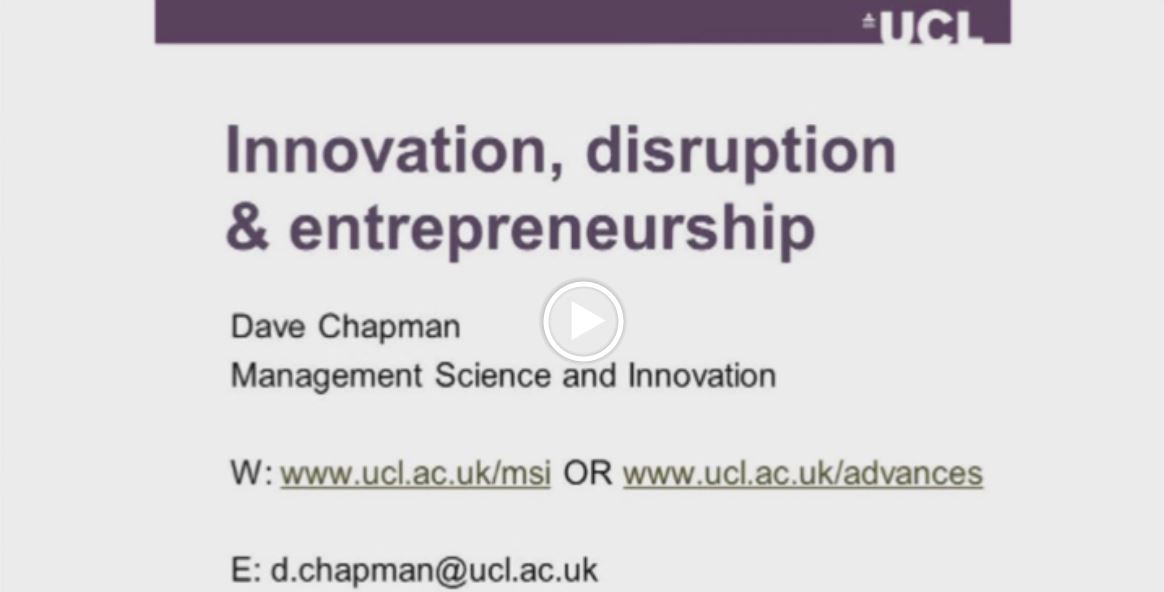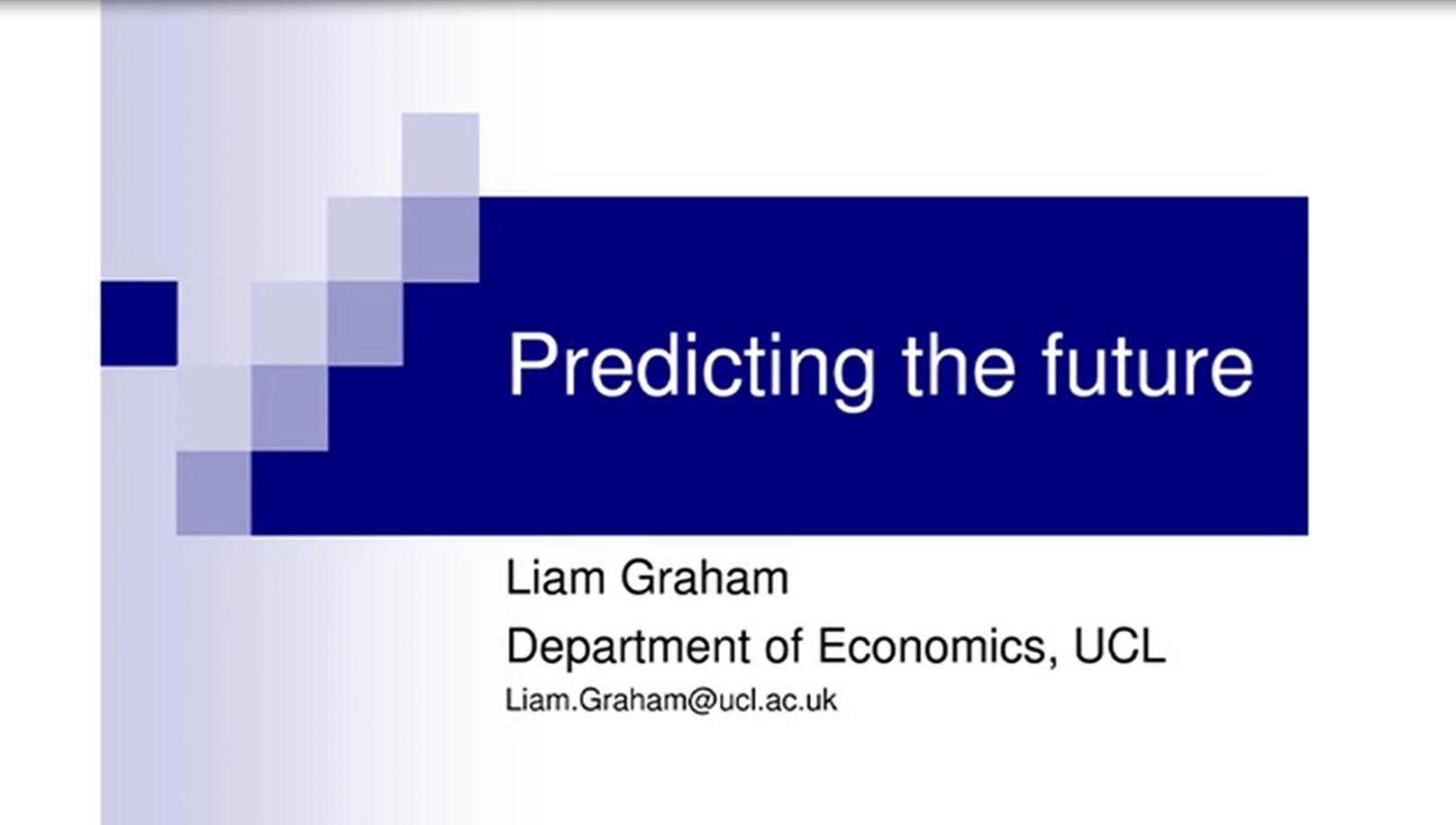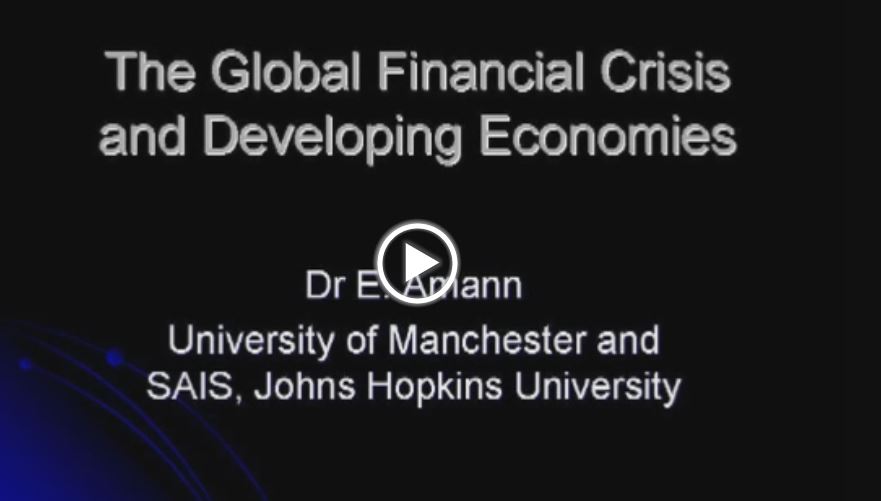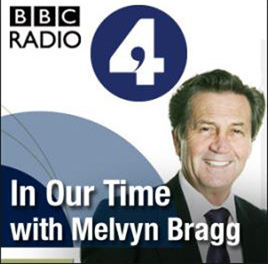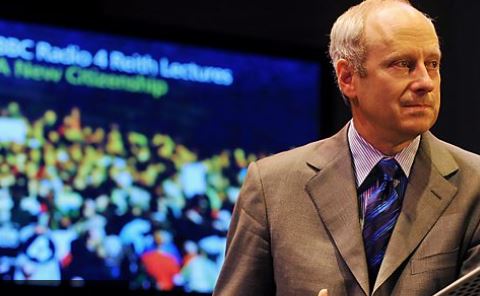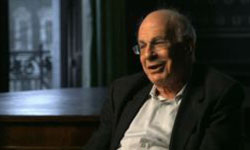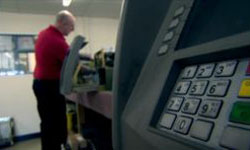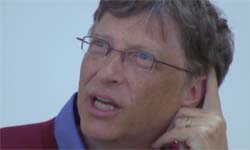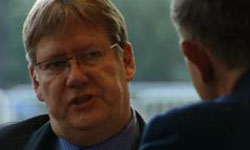Select one or more of these popular tags:
The Money Programme team presents an inside account of the BP oil spill. Features a host of interviews with key industry insiders, including world exclusives with Bob Dudley, the new Head of BP and Tony Hayward, his predecessor.
- British-Sign-Language
- Economics & Finance
- BSL subtitles
- 60
The Money Programme team presents an inside account of the BP oil spill. Features a host of interviews with key industry insiders, including world exclusives with Bob Dudley, the new Head of BP and Tony Hayward, his predecessor.
t's more than two years since the giant banks were bailed out with billions of pounds of tax-payers' money, yet little has been done to reform or regulate these vast institutions.
- British-Sign-Language
- Economics & Finance
- BSL subtitles
- 60
t's more than two years since the giant banks were bailed out with billions of pounds of tax-payers' money, yet little has been done to reform or regulate these vast institutions.
-
Economics
-
Dr Nalini Vittal , 2018
Pre-sessional Lecture 26.06.2018
- Lectures
- Economics & Finance
- No subtitles
- 59
Pre-sessional Lecture 26.06.2018
-
Innovation, Disruption, and Entrepreneurship
-
Dave Chapman , 2012
Diploma Lecture 2012
- Lectures
- Economics & Finance
- No subtitles
- 42
Diploma Lecture 2012
-
Predicting the Future
-
Liam Graham, Department of Economics , 2013
Pre-sessional Lecture 2013
- Lectures
- Economics & Finance
- No subtitles
- 54
Pre-sessional Lecture 2013
-
The Global Financial Crisis and Developing Economies
-
Dr E. Amann , 2011
UPC 2011
- Lectures
- Economics & Finance
- No subtitles
- 49
UPC 2011
-
The Private Finance Initiative in the UK (with transcript)
-
Dr Gramham Ive , 2005
GPC Lecture 2005
- Lectures
- Economics & Finance
- No subtitles
- 60
GPC Lecture 2005
-
What Do Crime and Diseases Have in Common?
-
Dr Shane D. Johnson , 2007
Pre-Sessional 2007
- Lectures
- Economics & Finance
- No subtitles
- 65
Pre-Sessional 2007
-
China on a Plate - 1
-
Lars Tharp
Lars Tharp explores the Chinese porcelain industry. He travels to Jingdezhen, west of Shanghai, the most important city in the maufacture of pocelain for 1,000 years and follows the trail linking Jingdezhen to Britain.
Lars Tharp explores the Chinese porcelain industry. He travels to Jingdezhen, west of Shanghai, the most important city in the maufacture of pocelain for 1,000 years and follows the trail linking Jingdezhen to Britain.
-
China on a Plate - 2
-
Lars Tharp
Lars Tharp explores the Chinese porcelain industry. He travels to Jingdezhen, west of Shanghai, the most important city in the maufacture of pocelain for 1,000 years and follows the trail linking Jingdezhen to Britain.
Lars Tharp explores the Chinese porcelain industry. He travels to Jingdezhen, west of Shanghai, the most important city in the maufacture of pocelain for 1,000 years and follows the trail linking Jingdezhen to Britain.
-
In Our Time - Economic Rights
-
Melvyn Bragg
Is democracy the truest conduit of capitalism, or do the forces that make us rich run counter to the democratic institutions that safeguard our rights?With Professor Amartya Sen, Master of Trinity College, Cambridge and winner of the 1998 Nobel Prize in Economic Science; Will Hutton, former Editor of The Observer, Director of The Industrial Society and author of The State We’re In.
Is democracy the truest conduit of capitalism, or do the forces that make us rich run counter to the democratic institutions that safeguard our rights?With Professor Amartya Sen, Master of Trinity College, Cambridge and winner of the 1998 Nobel Prize in Economic Science; Will Hutton, former Editor of The Observer, Director of The Industrial Society and author of The State We’re In.
-
In Our Time - Tea: an empire in a teacup
-
Melvyn Bragg
After air and water, tea is the most widely consumed substance on the planet and the British national drink. In this country it helped define class and gender, it funded wars and propped up the economy of the Empire. The trade started in the 1660s with an official import of just 2 ounces, by 1801 24 million pounds of tea were coming in every year and people of all classes were drinking an average two cups a day. It was the first mass commodity, and the merchant philanthropist Jonas Hanway decried its hold on the nation, “your servants' servants, down to the very beggars, will not be satisfied unless they consume the produce of the remote country of China”. What drove the extraordinary take up of tea in this country? What role did it play in the global economy of the Empire and at what point did it stop becoming an exotic foreign luxury and start to define the essence of Englishness?
After air and water, tea is the most widely consumed substance on the planet and the British national drink. In this country it helped define class and gender, it funded wars and propped up the economy of the Empire. The trade started in the 1660s with an official import of just 2 ounces, by 1801 24 million pounds of tea were coming in every year and people of all classes were drinking an average two cups a day. It was the first mass commodity, and the merchant philanthropist Jonas Hanway decried its hold on the nation, “your servants' servants, down to the very beggars, will not be satisfied unless they consume the produce of the remote country of China”. What drove the extraordinary take up of tea in this country? What role did it play in the global economy of the Empire and at what point did it stop becoming an exotic foreign luxury and start to define the essence of Englishness?
-
In Our Time - The Opium Wars
-
Yangwen Zheng, Lars Laamann & Xun Zhou
The Opium Wars between Britain and China in the 19th century forced China to open its doors to trade with the western world. The Chinese had banned opium in its various forms several times, citing concern for public morals, but the prohibition was ignored. The East India Company held a monopoly on the production of opium in British India. Private British traders continued to smuggle large quantities of opium into China. In this way, the opium trade became a way of balancing a trade deficit brought about by Britain's own addiction to tea. The Chinese protested against the flouting of the ban but the British continued to trade, leading to a crackdown by Lin Tse-Hsu, a man appointed to be China's Opium Drugs Czar. He confiscated opium from the British traders and destroyed it.
The Opium Wars between Britain and China in the 19th century forced China to open its doors to trade with the western world. The Chinese had banned opium in its various forms several times, citing concern for public morals, but the prohibition was ignored. The East India Company held a monopoly on the production of opium in British India. Private British traders continued to smuggle large quantities of opium into China. In this way, the opium trade became a way of balancing a trade deficit brought about by Britain's own addiction to tea. The Chinese protested against the flouting of the ban but the British continued to trade, leading to a crackdown by Lin Tse-Hsu, a man appointed to be China's Opium Drugs Czar. He confiscated opium from the British traders and destroyed it.
-
Power Failure at the Central Bank
-
Robert Peston
Business editor Robert Peston examines the crisis in the international banking system. For the last six decades, central bankers from the most developed countries have managed the global economy, manipulating international finances with the aid of a powerful set of economic levers handed to them after the Second World War. Last year the levers became disconnected from the machinery and the central banking system has suffered a severe loss of power
Business editor Robert Peston examines the crisis in the international banking system. For the last six decades, central bankers from the most developed countries have managed the global economy, manipulating international finances with the aid of a powerful set of economic levers handed to them after the Second World War. Last year the levers became disconnected from the machinery and the central banking system has suffered a severe loss of power
-
The Reith Lectures 2005 - 01 Collaboration
-
Lord Broers
When I returned to this Engineering Department from the USA in 1984 my wife and I bought an historic and wonderful house some ten miles south of Cambridge. It was built around 1520, a date that could be substantiated to within a decade by the form of the oak beams that comprised its floors and ceilings. These had been shaped by iron blades that only lasted about ten years. Being someone of the present rather than the past I had not previously been much preoccupied with history but living in the splendid oak structure - like a fine sailing vessel that had gone aground - inspired me to wonder what had preoccupied the technologists and scientists of that age...
When I returned to this Engineering Department from the USA in 1984 my wife and I bought an historic and wonderful house some ten miles south of Cambridge. It was built around 1520, a date that could be substantiated to within a decade by the form of the oak beams that comprised its floors and ceilings. These had been shaped by iron blades that only lasted about ten years. Being someone of the present rather than the past I had not previously been much preoccupied with history but living in the splendid oak structure - like a fine sailing vessel that had gone aground - inspired me to wonder what had preoccupied the technologists and scientists of that age...
When Ralph Waldo Emerson reputedly and memorably said that the world would beat a path to the door of a person who made a better mousetrap, he was perhaps being unduly optimistic, but at least he realised that the mousetrap had to be made and that it would not be sufficient merely to have an idea, or even a patent, for a better mouse trap. Ideas have to be proven to be useful, and the world told about them, before any paths are beaten. Profound changes have taken place in the development of ideas and their translation in to the market place and in my third Reith lecture I argue that this innovation revolution demands a new approach to research and product development...
When Ralph Waldo Emerson reputedly and memorably said that the world would beat a path to the door of a person who made a better mousetrap, he was perhaps being unduly optimistic, but at least he realised that the mousetrap had to be made and that it would not be sufficient merely to have an idea, or even a patent, for a better mouse trap. Ideas have to be proven to be useful, and the world told about them, before any paths are beaten. Profound changes have taken place in the development of ideas and their translation in to the market place and in my third Reith lecture I argue that this innovation revolution demands a new approach to research and product development...
-
The Reith Lectures 2007 - 1 - Bursting at the Seams
-
Prof. Jeffrey Sachs
The 21st century will be marked by severe natural resource limits, the rise of new economic powers and the threats of failed states. These are tectonic changes with the potential to unleash global-scale upheavals. Global cooperation of an unprecedented depth and scale will be needed but we are not yet prepared for such cooperation
The 21st century will be marked by severe natural resource limits, the rise of new economic powers and the threats of failed states. These are tectonic changes with the potential to unleash global-scale upheavals. Global cooperation of an unprecedented depth and scale will be needed but we are not yet prepared for such cooperation
-
The Reith Lectures 2007 - 4 - Economic Solidarity for a Crowded Planet
-
Prof. Jeffrey Sachs
This lecture considers the challenges of extreme poverty and the extreme worry of the rest of the world which fears for its own prosperity. It spells out the limits of the free market to solve these problems and proposes a plan of action which presents choices to those listening
This lecture considers the challenges of extreme poverty and the extreme worry of the rest of the world which fears for its own prosperity. It spells out the limits of the free market to solve these problems and proposes a plan of action which presents choices to those listening
-
The Reith Lectures 2009 - 1 - Markets and Morals
-
Prof. Michael Sandel
A New Citizenship: Professor Michael Sandel delivers four lectures about the prospects of a new politics of the common good.In the first lecture he considers the expansion and moral limits of markets.
A New Citizenship: Professor Michael Sandel delivers four lectures about the prospects of a new politics of the common good.In the first lecture he considers the expansion and moral limits of markets.
The dramatic inside story of the scandal that ripped through the banking industry in 2012 and took down a banking legend, Bob Diamond. In the first of a new three-part series, bank bosses, regulators and politicians give frank first-hand accounts of how the balance of power has finally started to shift away from the masters of the universe.
- TV-Recordings
- Economics & Finance
- No subtitles
- 60
The dramatic inside story of the scandal that ripped through the banking industry in 2012 and took down a banking legend, Bob Diamond. In the first of a new three-part series, bank bosses, regulators and politicians give frank first-hand accounts of how the balance of power has finally started to shift away from the masters of the universe.
With gripping first-hand accounts from banking insiders, regulators and politicians this film tells the story of two recent multi-billion pound trading disasters that rocked the City. It shows that some bankers are still taking reckless risks, five years after the crash that brought the world's economy to its knees.
- TV-Recordings
- Economics & Finance
- No subtitles
- 60
With gripping first-hand accounts from banking insiders, regulators and politicians this film tells the story of two recent multi-billion pound trading disasters that rocked the City. It shows that some bankers are still taking reckless risks, five years after the crash that brought the world's economy to its knees.
The eye-opening story of how Britain's multi-billion pound financial mis-selling scandal came about. With first-hand accounts from bank bosses, sales staff, politicians and customers, the film charts three decades of extraordinary changes inside our high street banks.
- TV-Recordings
- Economics & Finance
- No subtitles
- 60
The eye-opening story of how Britain's multi-billion pound financial mis-selling scandal came about. With first-hand accounts from bank bosses, sales staff, politicians and customers, the film charts three decades of extraordinary changes inside our high street banks.
In June 2009, disgraced financier Bernard L Madoff was sentenced to 150 years in prison after pleading guilty to defrauding thousands of investors out of billions of dollars in a giant…
- TV-Recordings
- Economics & Finance
- No subtitles
- 49
In June 2009, disgraced financier Bernard L Madoff was sentenced to 150 years in prison after pleading guilty to defrauding thousands of investors out of billions of dollars in a giant…
-
Bill Gates: How a Geek Changed the World
-
Charles Miller
In a special one-hour edition of the Money Programme, Fiona Bruce presents the definitive profile of Bill Gates as he embarks on his latest challenge - giving away the billions he has amassed, through the charitable foundation he runs with his wife and his father.
- TV-Recordings
- Economics & Finance
- No subtitles
- 58
In a special one-hour edition of the Money Programme, Fiona Bruce presents the definitive profile of Bill Gates as he embarks on his latest challenge - giving away the billions he has amassed, through the charitable foundation he runs with his wife and his father.
Britain\'s top bankers helped bring the economy to the brink of ruin; their gambling triggered thousands of job losses and exposed taxpayers to over a trillion pounds of possible risk. In this edition of Dispatches, journalist Jane Moore investigates exactly how much these former bosses have been rewarded for these failings - and how much they are still raking in.
- TV-Recordings
- Economics & Finance
- No subtitles
- 50
Britain\'s top bankers helped bring the economy to the brink of ruin; their gambling triggered thousands of job losses and exposed taxpayers to over a trillion pounds of possible risk. In this edition of Dispatches, journalist Jane Moore investigates exactly how much these former bosses have been rewarded for these failings - and how much they are still raking in.
-
Dispatches - Britain's Secret Fat Cats
-
Channel 4
Financial journalist Ben Laurance looks at whether the coalition\'s keystone policy, the Big Society, may actually benefit big business, while the public and voluntary sectors feel the pinch of austerity Britain.
- TV-Recordings
- Economics & Finance
- No subtitles
- 47
Financial journalist Ben Laurance looks at whether the coalition\'s keystone policy, the Big Society, may actually benefit big business, while the public and voluntary sectors feel the pinch of austerity Britain.
In the second half of this special two-part Dispatches, economist and author Will Hutton continues the definitive insider\'s account of how Britain\'s economy went from boom to bust.
- TV-Recordings
- Economics & Finance
- No subtitles
- 48
In the second half of this special two-part Dispatches, economist and author Will Hutton continues the definitive insider\'s account of how Britain\'s economy went from boom to bust.
Talking to the key players in government, Wall Street and the City, Hutton unveils the true extent of the greed, ambition and reckless risk-taking that is now carrying the economy into the worst recession for a century
- TV-Recordings
- Economics & Finance
- No subtitles
- 48
Talking to the key players in government, Wall Street and the City, Hutton unveils the true extent of the greed, ambition and reckless risk-taking that is now carrying the economy into the worst recession for a century
-
Dispatches - Crash Gordon
-
Channel 4
As Prime Minister, Gordon Brown has presided over the biggest recession in 75 years. Rawnsley examines the key moments, showing how Brown as Prime Minister inherited the economic problems of his own 10 years as chancellor.
- TV-Recordings
- Economics & Finance
- No subtitles
- 57
As Prime Minister, Gordon Brown has presided over the biggest recession in 75 years. Rawnsley examines the key moments, showing how Brown as Prime Minister inherited the economic problems of his own 10 years as chancellor.
-
Dispatches - Fashion's Dirty Secret
-
Channel 4
Dispatches investigates the working conditions of clothing manufacturing units in the UK. With British consumers keen to buy the latest designer looks at cheap prices, this film exposes the real human cost behind high street fashion.
- TV-Recordings
- Economics & Finance
- No subtitles
- 48
Dispatches investigates the working conditions of clothing manufacturing units in the UK. With British consumers keen to buy the latest designer looks at cheap prices, this film exposes the real human cost behind high street fashion.

